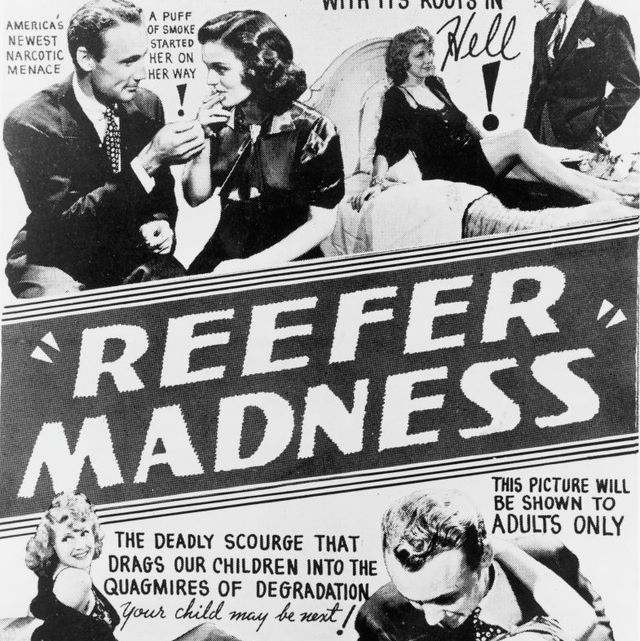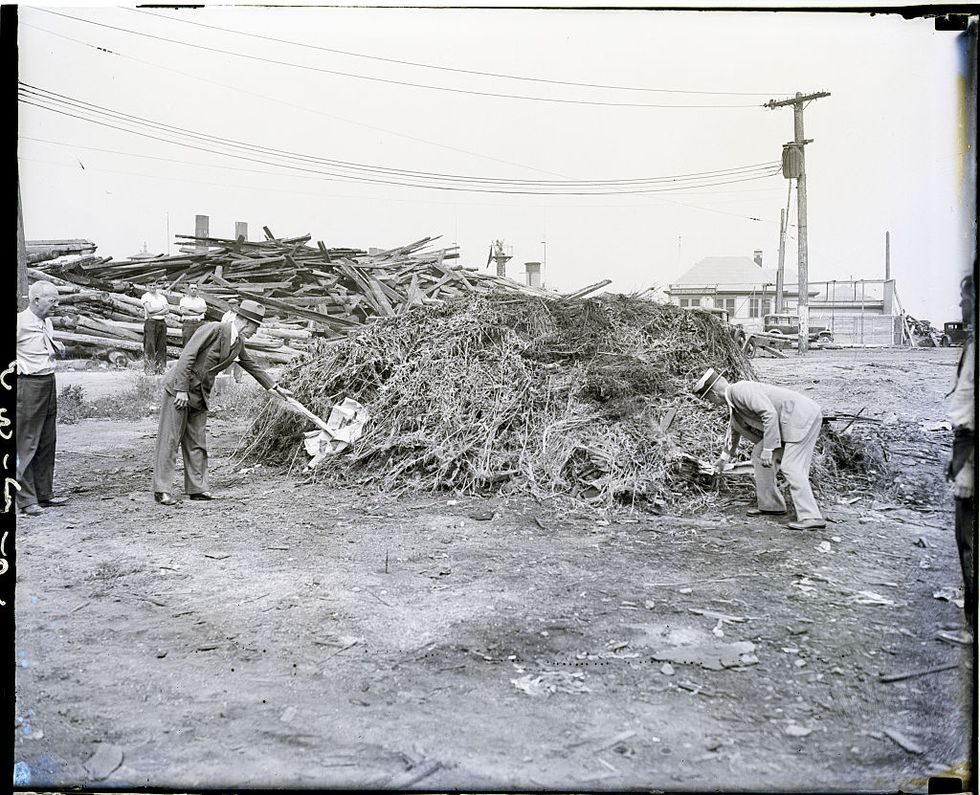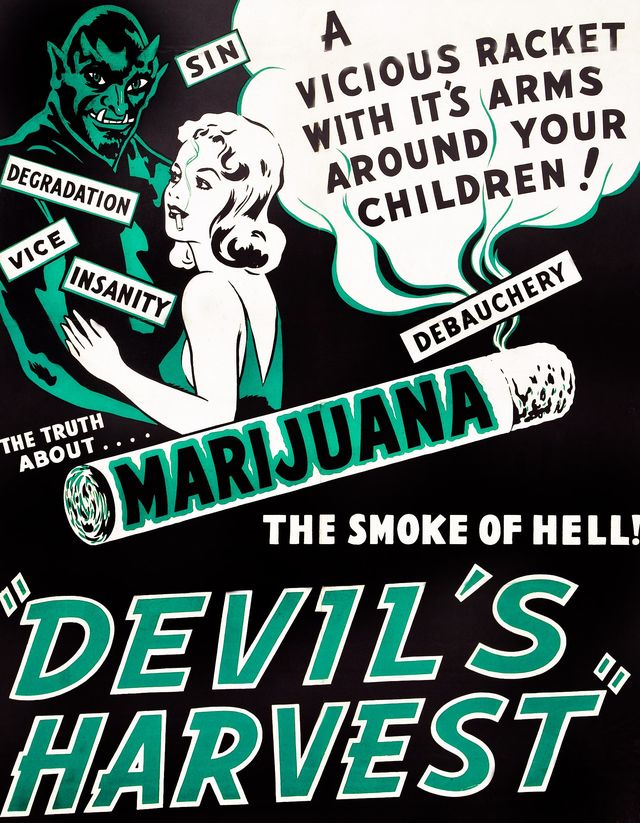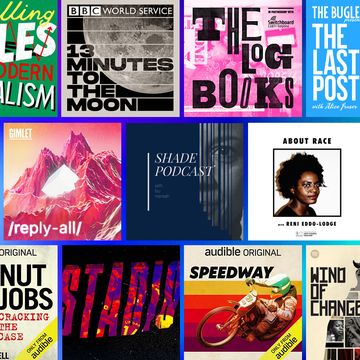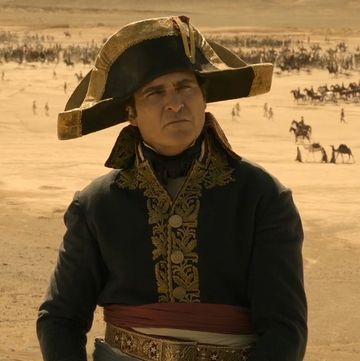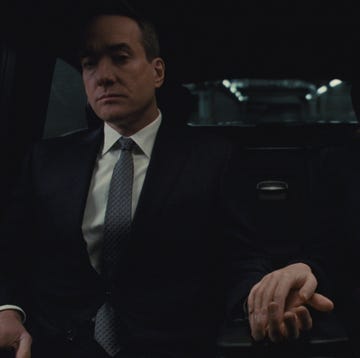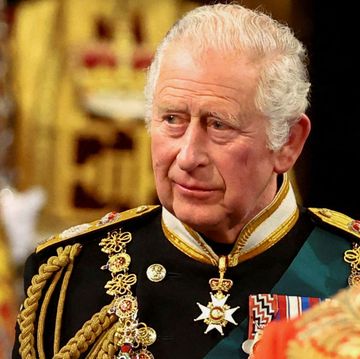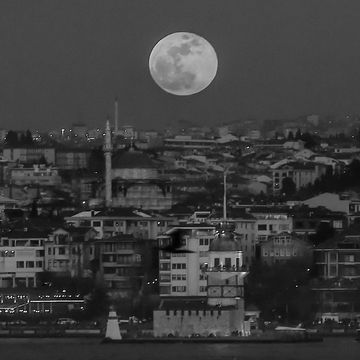Not far from this very keyboard there is a marijuana store. It is the size of a Target, all white and glass, and from the street, it looks like a place where you’d go to buy modern kitchen appliances or high-end electronics. Every time I walk by it—and yes, I walk by it—I think back to when weed was sold in baggies by the ounce, usually by someone you knew, however casually. I knew a guy long ago who had a client list to die for: business leaders, bankers, entertainers (obviously), and more than a few regular clients up at the state house on Beacon Hill (which is probably why he never got busted).
On Thursday, the president of the United States called a partial truce on this particular front in our misbegotten "war on drugs." He issued an executive order that pardoned every person in federal custody for possession of marijuana. He did so in a way that showed that he recognizes the absurdity at the heart of the dark burlesque of having people in prison for possessing a substance that is now legal all over the country. The president said:
“No one should be in jail just for using or possessing marijuana. It’s legal in many states, and criminal records for marijuana possession have led to needless barriers to employment, housing, and educational opportunities. And that’s before you address the racial disparities around who suffers the consequences. While white and Black and brown people use marijuana at similar rates, Black and brown people are arrested, prosecuted, and convicted at disproportionate rates. Too many lives have been upended because of our failed approach to marijuana. It’s time that we right these wrongs.”
Obviously, this was a high-stakes political move for the president. We are coming into the home stretch of a crucial midterm election, and the Republicans plainly have decided that a Nixon-era “law ’n order” campaign is their golden escalator to the stars. They are hammering Democratic candidates with ferocious—and toweringly mendacious—TV ads on the hoary theme of “soft on crime.” One example is the U.S. Senate race in New Hampshire, where vulnerable Democratic incumbent Maggie Hassan has found it necessary to return fire with a commercial in which uniformed police talk about how tough she is on crime and border security. Her slightly cracked opponent, Dan Bolduc, is almost invisible in the air war. It’s Hassan against the national Republican Party.
(Perhaps the most hilariously dishonest attack along these lines is the faux outrage that federal prisoners got pandemic stimulus checks just like their un-incarcerated fellow citizens did. Dzokhar Tsarnaev, the Boston Marathon bomber, stars in many of these commercials, even though his $1,400 instantly went to pay his criminal fines and to a restitution fund for his victims. Also, the bill that set up the program was passed in an enthusiastically bipartisan way.)
Surprisingly, the Republicans did not leap at the chance to fold the president’s recent action into their ongoing campaign narrative. True, the threadbare “gateway drug” argument was pulled out of the attic, and Sen. Tom Cotton, the bobble-throated slapdick from Arkansas who thinks that we don’t incarcerate nearly enough people in this country, went into orbit, tweeting:
Once again, Biden's response to record overdose deaths and murders is to be softer towards crime.
and:
But the institutional Republican party and its congressional leadership was surprisingly subdued in the immediate aftermath of the president’s order. Biden, a fervent drug warrior during his time in the Senate, apparently was prompted to make this move when his staff advanced an argument that highlighted the sentencing inequities between black and white defendants. So he has gambled that the route to decriminalization runs through normalization, through the shiny glass doors of the weed store down the block.
The United States’ misbegotten policy on marijuana has its roots in pure bigotry, as so many of this country’s misbegotten policies do. Prior to the early 1900s, marijuana was freely available over the counter in pharmacies. (Hell, hemp was an important export product in the early days of the Republic up until the Civil War.)
And then…the Mexicans came.
In 1910, in the wake of the Mexican Revolution, Mexican immigration to the U.S. spiked, as did the recreational use of marijuana. By 1930, marijuana was illegal in 29 states. In 1937, Congress passed the Marihuana Tax Act, which effectively criminalized the possession and use of marijuana in this country. And this transformation was largely the work of one man: Harry Anslinger, a government enforcer during Prohibition and eventually the head of the Federal Narcotics Bureau, the precursor to the modern DEA.
Anslinger is the Ur-drug warrior. He determined that not enough people were using cocaine and heroin to provide a decent public profile, but marijuana was perfect for the job. He demanded aggressive enforcement and long prison sentences. He mocked the notion of medical marijuana. Anslinger saw in marijuana use a vast panorama of cultural devastation, most of it attributable to Black and brown people and their hophead music and casual lifestyles. Writing for CBS News, Kyle Schmidlin explained the distance Anslinger was willing to go to sell his programs.
Quotes attributable to Anslinger include (and there are certainly more than these): "Reefer makes d*rkies think they're as good as white men." "You smoke a joint and you're likely to kill your brother." And my personal favorite, "There are 100,000 total marijuana smokers in the U.S., and most are Negroes, Hispanics, Filipinos and entertainers. Their Satanic music, jazz and swing result from marijuana use. This marijuana causes white women to seek sexual relations with Negroes, entertainers and any others."
Yes, friends, it’s Racist Culture War Bingo, and Harry wins the House Cup.
Everything went wrong from there. Author Eric Schlosser wrote about the destructive success of Anslinger’s campaign.
The political upheaval in Mexico that culminated in the Revolution of 1910 led to a wave of Mexican immigration to states throughout the American Southwest. The prejudices and fears that greeted these peasant immigrants also extended to their traditional means of intoxication: smoking marijuana. Police officers in Texas claimed that marijuana incited violent crimes, aroused a "lust for blood," and gave its users "superhuman strength." Rumors spread that Mexicans were distributing this "killer weed" to unsuspecting American schoolchildren. Sailors and West Indian immigrants brought the practice of smoking marijuana to port cities along the Gulf of Mexico. In New Orleans newspaper articles associated the drug with African-Americans, jazz musicians, prostitutes, and underworld whites. "The Marijuana Menace," as sketched by anti-drug campaigners, was personified by inferior races and social deviants.
The peak of the popular culture front of Anslinger’s war was, of course, the 1936 release of the exploitation film, "Reefer Madness." Repurposed from a movie called "Tell Your Children" by exploitation master Dwain Esper—as strange a piece of work as ever worked the back alleys of Hollywood, Esper makes Ed Wood look like Kurosawa—he cut in some hootchie-coo scenes with actress Thelma White and retitled the film. It scared enough people to help the national effort to demonize the evil weed. Then it faded from memory—until marijuana reform groups in the 1970s got ahold of it and turned it into a beloved camp classic, one of the most effective early pushbacks against criminalization.
It became a campus favorite, especially among those who indulged themselves (more than occasionally prior to attending a screening). A generation of Americans grew up with an absurdist view of marijuana laws, which steadily corroded their legitimacy until finally, slowly, they toppled. But as it turns out, it was the fundamental imbalances in who got busted and who got harsher sentences that torpedoed the laws in the mind of the president.
So in citing the inequities in the enforcement of the law in his statement, the president went right to the historical roots of the problem. He exposed the foul origins of the destructive “war on drugs" and laid them out for the world to see. If he issued his executive order on the basis of simple fairness, then as far as I’m concerned that’s as noble a motive as any I’ve heard. A century of ginned-up terror is long enough.

Charles P Pierce is the author of four books, most recently Idiot America, and has been a working journalist since 1976. He lives near Boston and has three children.
